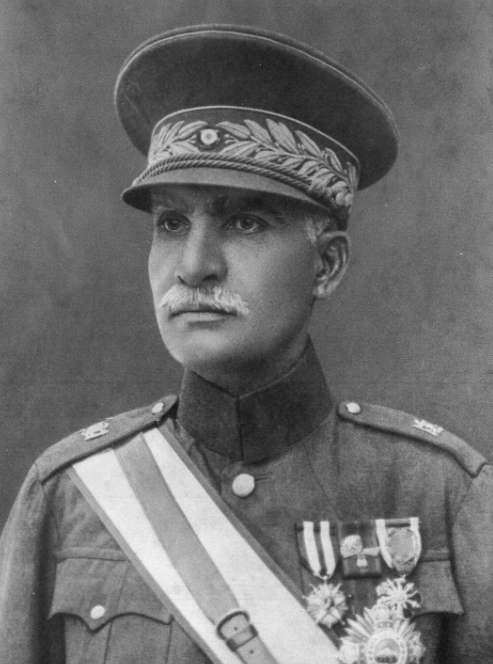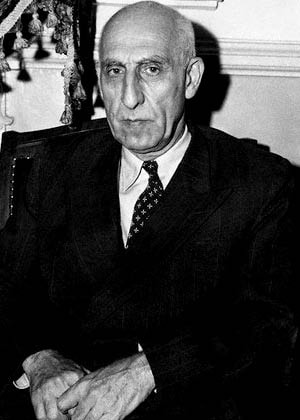The 1979 revolution dramatically changed Iran-Israel relations as Iran became a staunch supporter of the Palestinians.

On October 1, Iran fired nearly 200 missiles at Israel, retaliating for the Israeli airstrike that killed the leader of the Hezbollah movement in Lebanon.
Following the attack, both sides issued strong warnings, with Israel vowing to make Iran pay the price, while Iran vowed to “crush” Israel if it retaliated.
These warnings make it hard to imagine Iran and Israel ever being allies.
Under the Pahlavi dynasty, which ruled from 1925 until it was overthrown in the 1979 revolution, relations between Iran and Israel were far from hostile. In fact, Iran was the second Muslim-majority country to recognize Israel after its establishment in 1948.
Iran was one of 11 members of the UN special committee set up in 1947 to propose a solution to the Palestinian issue after Britain ended its control of the land. Iran was one of three countries that voted against the UN plan to partition Palestine, fearing that it would increase violence in the region for generations.
“Iran, together with India and Yugoslavia, proposed an alternative plan, a federal solution, which would have kept Palestine as a parliamentary state but divided into Arab and Jewish states,” Oxford University historian Eirik Kvindesland told Al Jazeera. “It was Iran’s compromise to maintain positive relations with the pro-Israel West and with its Arab and Muslim neighbours.
However, two years after Israel had captured more territory than the United Nations had approved following the outbreak of the first Arab-Israeli War in 1948, Iran – then ruled by Mohammad Reza Pahlavi, the second shah of the Pahlavi dynasty – became the second Muslim-majority country after Turkey to formally recognize Israel. Before Israel was established in 1948, over 700,000 Palestinians were forced to flee their homes. Palestinians refer to this event as the Nakba, which means catastrophe in Arabic.
According to Mr. Kvindesland, Tehran's move is mainly to manage Iranian assets in Palestine because about 2,000 Iranians live here and their assets were confiscated by the Israeli army during the war.
But the move also comes within the context of Israel's “periphery doctrine.”
“To end his isolation in the Middle East, Israeli Prime Minister David Ben-Gurion pursued relations with non-Arab states on the ‘periphery’ of the Middle East, what came to be known as the periphery doctrine. This also included Ethiopia, but Iran and Türkiye were the two most successful approaches,” Kvindesland explains.

Everything changed when Mohammad Mosaddegh became prime minister of Iran in 1951 and led a movement to nationalize Iran's oil industry, which had been monopolized by Britain. Mosaddegh severed ties with Israel because he saw Israel as serving Western interests in the region.
According to Mr. Kvindesland, Iran's main concerns at that time were to nationalize oil, remove British colonial power and weaken the monarchy. Damage to Iran's relations with Israel was just collateral damage.
There are some anti-Semitic movements within Iran. The influential Shiite cleric Navvab Safavi, one of the most prominent, has been vocal in his opposition to Zionism and the creation of Israel. But for Prime Minister Mosaddegh, the main goal is to gain support from surrounding Arab states to fight British control of the oil industry.
Zionism emerged as a political ideology in the late 19th century, calling for the creation of a homeland for Jews, who faced brutal violence in Europe.
Things changed dramatically again when Prime Minister Mosaddegh's government was overthrown in a coup orchestrated by British and American intelligence in 1953. The coup restored the position of Mr. Reza, who became a close ally of the West in the region.
Israel established a de facto embassy in Tehran and the two countries eventually exchanged ambassadors in the 1970s. Trade relations grew and Iran quickly became a major supplier of oil to Israel, with the two countries establishing an oil pipeline to bring Iranian oil to Israel and then on to Europe.
Tehran and Tel Aviv also have extensive military and security cooperation, but it is largely kept secret to avoid provoking Arab states in the region.
According to Mr. Kvindesland, Israel needs Iran more than Iran needs Israel. Israel has always been the one to initiate, but Mr. Reza also wanted to find ways to improve Iran's relationship with the United States, and at the time, Israel was seen as a good way to achieve that goal.
“There is also the prospect of building up the Iranian security apparatus and the SAVAK security and intelligence agency, which has been partly trained by the Israeli Mossad. These are things that Iran could get from other sources, but Israel is keen to provide because it needs a partner in the Middle East, which is largely anti-Zionist and anti-Israel,” Kvindesland analyzed.
Historian Kvindesland said Mr Reza was driven primarily by the need for alliance, security and trade, with little regard for the Palestinians in their relationship with Israel.